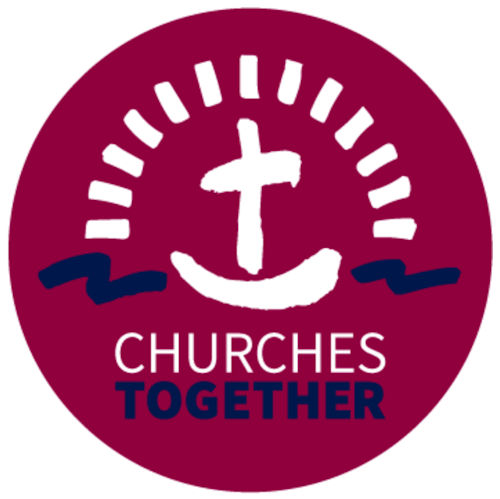Celebrating local Churches Together groups
 Churches Together in Norfolk and Waveney is an Intermediate Body that connects the national ecumenical movement, Churches Together in England (CTE), to its local ecumenical movements.
Churches Together in Norfolk and Waveney is an Intermediate Body that connects the national ecumenical movement, Churches Together in England (CTE), to its local ecumenical movements.
The national link brings expertise. The local link keeps national ecumenism real. Over 30 local Churches Together groups meet in the area that we cover. We celebrate, support, and encourage these groups as part of their ecumenical journey.
Each group is autonomous, and has its own history, shaped by the place and people who form it. Some are called "Churches Together," others "Christians Together," and still others go by unique names to their area; for example Transforming Norwich.
Common activities include services and discussion groups, conferences and events, and a wide variety of ways in which service is offered to the local community (e.g., food banks, street pastors, youth work, lunch clubs, festivals, night shelters, chaplaincy, etc).
Your local community can inspire others, so please share your good news stories with our County Ecumenical Officer
Start a Local Churches Together Group
Maybe you want to start, or restart, a group in your community. The key is to start small – you do not need an elaborate structure with lots of bureaucracy! What you need are relationships. At the end of the day ecumenism is all about people and relationships not endless paperwork or elaborate and complex structures.
You can start by simply inviting people from another church for tea and conversation. Pray together and share your hopes and wishes for the community you wish to serve.
You can learn more about starting a group through this excellent resource provided by Churches Together in England, which provides
Tips and Advice for How to Get Started Locally.
You may also want to check out their
Flexible Framework for Local Unity in Mission, which will help you to determine the level of structure that you need for your endeavour:
-
Working agreement (the “back of an envelope” plans)
-
Partnership agreement (for more extensive sharing of resources)
-
Constitutional agreement (for the most formal or legal structure)
While the LEPs all use constitutions, emerging partnerships will mostly find it beneficial to have a "Working Agreement" or "Partnership Agreement." The goal is to have the least-burdensome structure for achieving the goals of the partnership.
If you would like help working through A Flexible Framework, please contact the County Ecumenical Officer or one of your Denominational Ecumenical Officers.